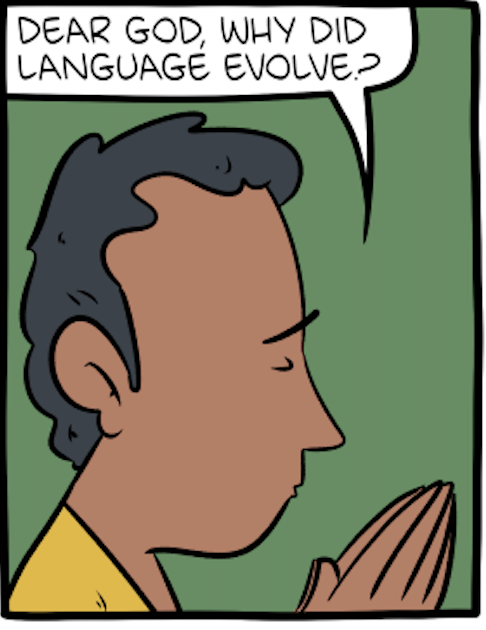February 2, 2021 @ 7:15 am
· Filed by Mark Liberman under Vernacular
Alexander Bolton, "West Virginia governor urges Congress to 'go big' on COVID-19 relief", The Hill 2/1/2021:
West Virginia Gov. Jim Justice, a Republican, on Monday argued that fiscal concerns should be set aside as the nation struggles to recover from the coronavirus pandemic, putting pressure on centrist Sen. Joe Manchin (D-W.Va.) to support a large COVID-19 relief bill.
“We need to understand that trying to be, per se, fiscally responsible at this point in time, with what we’ve got going on in this country — if we actually throw away some money right now, so what?” Justice told CNN in an interview. […]
Justice doubled down on his statement in a follow-up interview with MSNBC in which he urged Congress to “go big.” […]
“At this point in time in this nation, we need to go big. We need to quit counting the egg-sucking legs on the cows and count the cows and just move. And move forward and move right now,” he added.
Read the rest of this entry »
Permalink
February 2, 2021 @ 6:02 am
· Filed by Victor Mair under Slang, Topolects, Writing systems
The following viral Hokkien expression looks like it's written in Japanese hiragana and two Chinese characters, and so it is, but if you only know hiragana and standard Sino-Japanese characters, you won't have the ghost of an idea what it means:
りしれ供さ小
This is the challenge of reading and writing Sinitic topolects in Sinographs.
Even if you read this rather exhaustive article explaining what it means, you won't grasp all of the powerful nuances of this expression that is found on t-shirts, handbags, mugs, and various accessories:
"What Does a Trending T-shirt Say About Taiwanese Identity and Politics?", by Brian Hioe, The News Lens (2/01/21)
Read the rest of this entry »
Permalink
February 1, 2021 @ 7:15 am
· Filed by Victor Mair under Etymology, Language and culture, Lexicon and lexicography, Writing systems
Chris Button says that he was looking at the oracle-bone form for wēi 危 ("precarious, precipitous; perilous; high; ridge [of a roof]; dangerous") and noticed that Huang Dekuan (2007 mammoth dictionary of ancient forms of characters) treats it as depicting a qīqì 欹器 ("tilting vessel" or "tipping vessel"). This was:
…an ancient Chinese ceremonial utensil that automatically overturned and spilled its contents once it reached capacity, thus symbolizing moderation and caution. Both Confucian and Daoist Chinese classics include a famous anecdote about the first time Confucius saw a tilting vessel. In the Confucian tradition (e.g., Xunzi) it was also named yòuzuò zhī qì (宥座之器, "vessel on the right of one's seat"), with three positions, the vessel tilts to one side when empty, stands upright when filled halfway, and overturns when filled to the brim—illustrating the philosophical value of the golden mean. In the Daoist tradition, the tilting vessel was named yòuzhī (宥卮, "urging goblet" or "warning goblet"), with two positions, staying upright when empty and overturning when full—illustrating the metaphysical value of emptiness, and later associated with the Zhuangzian zhīyán (卮言, "goblet words") rhetorical device.
(source)
Read the rest of this entry »
Permalink
January 31, 2021 @ 5:48 pm
· Filed by Victor Mair under Language teaching and learning, Numbers, Writing
(source)
Read the rest of this entry »
Permalink
January 31, 2021 @ 10:50 am
· Filed by Mark Liberman under Linguistics in the comics
Today's SMBC starts this way:

Read the rest of this entry »
Permalink
January 30, 2021 @ 7:29 am
· Filed by Mark Liberman under Linguistics in the comics
The most recent Dinosaur Comics:

The mouseover title: "sorry to any jabronis reading this who didn't know yet that they were jabronis. honestly though that's such a jabroni situation to find yourself in"
Read the rest of this entry »
Permalink
January 29, 2021 @ 7:01 am
· Filed by Victor Mair under Borrowing, Language and archeology, Language and culture, Language and science, Language and technology
In our ongoing quest to link up linguistics with archeology, we have had numerous posts involving Iranian-speaking peoples spreading from west to east and bringing culture and language with them. When I say "culture", I mean technological as well as spiritual, artistic, architectural, and other aspects, plus social customs and political organization. Because the Iranian-speaking peoples were so active in spreading diverse manifestations of culture, I often refer to them as Kulturvermittlers par excellence.
Among the more prominent features of culture that Iranian-speaking peoples transmitted across Eurasia was metallurgy. That includes all four of the main metals: bronze, iron, gold, and silver. The first two were mainly for weapons and implements, and where they went, they transformed military affairs, agriculture, and daily life. The changes that bronze and iron brought about amounted to revolutions of civilization. Gold and silver were primarily for ornament and embellishment, and the Iranian-speaking people created breathtakingly beautiful works of art out of these precious metals
Read the rest of this entry »
Permalink
January 28, 2021 @ 8:12 am
· Filed by Victor Mair under Language and politics, Translation
A select quotation from the Confucian Analects (Zǐlù 13.18):
Shè gōng yù Kǒngzǐ yuē:`Wú dǎng yǒu zhígōng zhě, qí fù rǎng yáng, ér zi zhèng zhī. 'Kǒngzǐ yuē:`Wú dǎng zhī zhí zhě yì yú shì. Fù wèi zi yǐn, zi wèi fù yǐn, zhí zài qí zhōng yǐ.'
葉公語孔子曰:「吾黨有直躬者,其父攘羊,而子證之。」孔子曰:「吾黨之直者異於是。父為子隱,子為父隱,直在其中矣。」
The Duke of She informed Confucius, saying, "Among us here there are those who may be styled upright in their conduct. If their father have stolen a sheep, they will bear witness to the fact." Confucius said, "Among us, in our part of the country, those who are upright are different from this. The father conceals the misconduct of the son, and the son conceals the misconduct of the father. Uprightness is to be found in this." (trans. James Legge)
Read the rest of this entry »
Permalink
January 27, 2021 @ 10:08 am
· Filed by Victor Mair under Borrowing, Etymology, Historical linguistics, Reconstructions
[This is a guest post by Rhona Fenwick]
Though best-known for its titanic consonantal inventory, Ubykh also has an etymologically fascinating vocabulary, heavy with loans from a diverse array of sources. Many of these are drawn from the indigenous lexicons of its Circassian and Abkhaz sisters, but Circassian and Abkhaz both also acted as proxies by which Ubykh became a linguistic placer deposit of sorts, receiving substantial loan strata from millennia of the ebb and flow of Kartvelian, Turkic, Mongolic, Semitic, and Indo-European cultural tides. More recently the Ubykh nation’s exodus from their homeland and subsequent exile in Anatolia, following extensive genocides at the end of the Great Caucasian War (Ubykh: Adəɣaʁʷərda ‘the Rape of Circassia’), added yet another layer of complexity and invested the language with loans from whole new branches of Indo-European, Turkic, and Semitic. This makes compiling an Ubykh etymological dictionary a complex and challenging project, and while engaged in it I’ve often found myself having to track etymologies along paths that lead deep into other language stocks entirely. This post began as a question to Victor Mair while I was playing bloodhound along one such trail, and it was on his suggestion that I reworked it into a post for LL. Thank you for having me!
Read the rest of this entry »
Permalink
January 26, 2021 @ 6:27 pm
· Filed by Victor Mair under Alphabets, Spelling
[This is a guest post by Frank Southworth]
Most subscribers to Language Log will be familiar with the NATO alphabet, and other alphabets such as the U.S. military version, which are used for spelling names and other words over the telephone and radio. I personally had experience with the military version when I served in the U.S. Army. It worked reasonably well, because Army people were accustomed to it, but–for a number of reasons–I do not find it useful now for occasions when I have to spell words over the phone.
However, there seems to be a need for such an alphabet, and I would like to invite any linguists interested in developing one which would meet some key linguistic criteria (see next paragraph) to join me in creating it. The version presented below is my first attempt, which I offer as a model to be discussed and modified as needed.
Read the rest of this entry »
Permalink
January 25, 2021 @ 7:36 pm
· Filed by Victor Mair under Classification, Dialects, Language and politics, Language and society, Topolects
This is cause for rejoicing:
"Meet the Malaysian on a mission to make Hokkien great again, amid Mandarin’s rising popularity in Southeast Asia"
Linguist Sim Tze Wei has been accused of trying to divide the Chinese people, as there are those who see the use of other Chinese languages ‘as a sign of disunity and weakness’
But he points out that Chinese immigrants to Asia have for generations been speaking their own languages, which are being edged out as more turn to learning Mandarin
Randy Mulyanto, SCMP, 1/24/21
When Sim Tze Wei began working to raise awareness of the Hokkien language, he never expected he would be accused of trying to divide the Chinese people.
“Han Chinese nationalists everywhere are keen to equate Mandarin to [real] Chinese,” said Sim, adding that there are those who find ethnic Chinese people speaking in Chinese languages other than Mandarin “as a sign of disunity and weakness”.
The Malaysian-Chinese linguist, who is in his mid-30s, is president of the Hokkien Language Association of Penang. Through the association, Sim is campaigning for the wider use of Hokkien, and advocating that it be reinstated as a language of instruction in independent and Chinese primary schools in the northern Malaysian state, as he fears Hokkien will “continue to be eroded by Mandarin and English”.
Read the rest of this entry »
Permalink
January 22, 2021 @ 2:38 pm
· Filed by Victor Mair under Borrowing, Language and culture, Language and food, Language and history
When I visited Samarkand about 35-40 years ago (before digital days), I ate some of these luscious, mythic peaches:

Read the rest of this entry »
Permalink
January 19, 2021 @ 7:16 am
· Filed by Victor Mair under Borrowing, Etymology, Language and food
The other day, when we were discussing where Napa cabbage came from, Diana Shuheng Zhang mentioned to me that the Chinese word for "spinach", bōcài 菠菜, indicates that it came from Persia. She's usually right about such things, and she was in this case too:
From earlier 波斯菜 (bōsīcài), from 波斯 (Bōsī, “Persia”) + 菜 (cài, “greens, vegetable”).
where bōsī 波斯 is obviously a transcription of "Persia":
Borrowed from Old Persian (Pārsa).
Middle Sinitic: /puɑ siᴇ/
(source)
Read the rest of this entry »
Permalink


